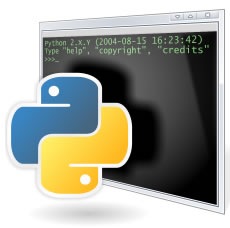6 reasons why people use Python
Chung Tran | 14 March 2012 | Python basic |
Although I'm a newbie in python, I want to know why all of the most experts I known are using Python for developing applications. There are six reasons why people use Python that written in Learning Python of Mark Lutz :
1. Software quality
For many, Python’s focus on readability, coherence, and software quality in general sets it apart from other tools in the scripting world. Python code is designedto be readable, and hence, reusable and maintainable—much more so than traditional scripting languages. The uniformity of Python code makes it easy to understand, even if you did not write it. In addition, Python has deep support for more advanced software reuse mechanisms, such as object-oriented programming (OOP).
2. Developer productivity
Python boosts developer productivity many times beyond compiled or statically typed languages such as C, C++, and Java. Python code is typically one-third to one-fifth the size of equivalent C++ or Java code. That means there is less to type, less to debug, and less to maintain after the fact. Python programs also run immediately, without the lengthy compile and link steps of some other tools, further boosting programmer speed.
3.Program portability
Most Python programs run unchanged on all major computer platforms. Porting Python code between Linux and Windows, for example, is usually just a matter of copying a script’s code between machines. Moreover, Python offers multiple options for coding portable graphical user interfaces, database access programs, web-based systems, and more. Even operating system interfaces, including program launches and directory processing, are as portable in Python as they can possibly be.
4.Support libraries
Python comes with a large collection of prebuilt and portable functionality, known as the standard library. This library supports an array of application-level programming tasks, from text pattern matching to network scripting. In addition, Python can be extended with both homegrown libraries and a vast collection of third-party application support software. Python’s third-party domain offers tools for web site construction, numeric programming, serial port access, game development, and much more. The NumPy extension, for instance, has been described as a free and more powerful equivalent to the Matlab numeric programming system.
5.Component integration
Python scripts can easily communicate with other parts of an application, using a variety of integration mechanisms. Such integrations allow Python to be used as a product customization and extension tool. Today, Python code can invoke C and C++ libraries, can be called from C and C++ programs, can integrate with Java components, can communicate over frameworks such as COM and .NET, and can interact over networks with interfaces like SOAP, XML-RPC, and CORBA. It is not a standalone tool.
6.Enjoyment
Because of Python’s ease of use and built-in toolset, it can make the act of programming more pleasure than chore. Although this may be an intangible benefit, its effect on productivity is an important asset.




